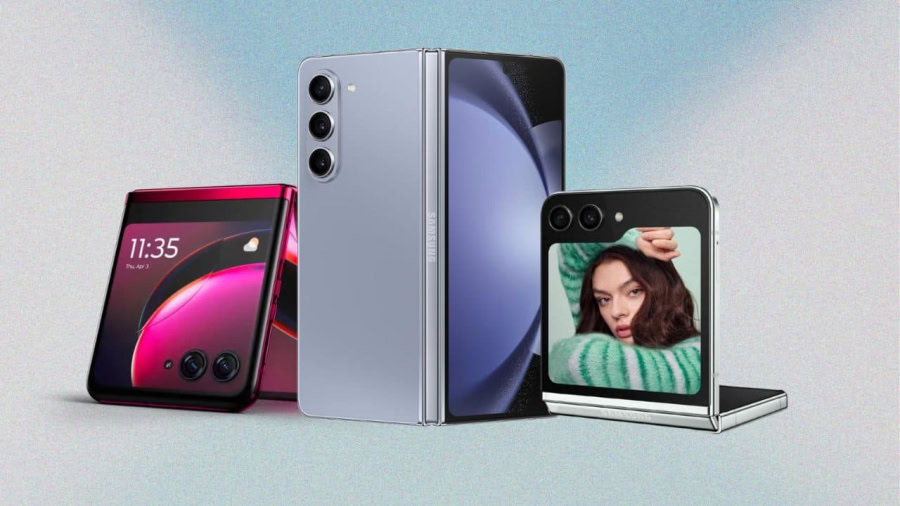Many of us shared the dream of owning a flip phone as our first mobile device. Motorola introduced the world to the first flip phone in 1996. This groundbreaking device, a clamshell phone featuring a compact monochrome display, achieved remarkable success, ultimately paving the way for the widespread adoption of the flip phone design.
While flip phones once reigned supreme as the go-to mobile device, they over time took a back seat to the ever-evolving world of smartphones. The trend faded due to the rise of versatile smartphones with internet access, apps, and cameras, making them more popular and affordable. However, in 2018, a design reminiscent of flip phones entered the market with the Royole FlexPai, initiating the trend of foldable phones. Despite having issues, such as a stiff hinge and display creases, it marked a significant technological achievement and paved the way for the development of other foldable phones.
Then, in February 2019, Samsung introduced the Galaxy Fold, considered the first mainstream foldable phone, which was more successful than the FlexPai and played a pivotal role in popularizing the foldable phone concept. Although it was a groundbreaking device that captivated people with its design, style, and innovation, it also had some major issues, such as hinge loosening, screen creases, and damage caused by dust or tight folding. Since then, several other foldable phones, including the Huawei Mate X, the Motorola Razr, and the OPPO Find N, have entered the market and have made improvements in the subsequent versions.
Foldable phones is a relatively new technology with all the advanced features offering a compelling blend of portability, innovation, and unique user experience making them a standout choice for those seeking an all-in-one solution. According to Counterpoint Research, in 2022, the number of users of foldable smartphones in the US was 4.7 million, a figure expected to surge to 16.5 million in 2023 and a remarkable 76.6 million in 2025.
Having said that, there are still several challenges that need to be addressed before foldable phones can become mainstream. Firstly, their screens are still more fragile than their traditional counterparts and active research and development are going on to create sturdier foldable screens capable of enduring repeated folding and unfolding. For instance, Samsung is using UTG in its latest foldable phones, which is a type of glass that is thinner and more flexible than traditional glass, making it more suitable for foldable phones.
Similarly, Huawei has developed a new folding mechanism called the Falcon Wing hinge which is designed to be more durable and easier to use than previous folding mechanisms. Secondly, the cost of foldable phones remains higher than that of conventional smartphones. Manufacturers are dedicated to lowering the price of foldable devices to make them more accessible to consumers.
Thirdly, software support is another hurdle. Not all applications are compatible with foldable phones, prompting brands to collaborate with app developers to ensure broader compatibility. Google is also making amends to ensure that its apps are compatible with foldable phones. Lastly, the diversity of foldable phone designs is currently limited. Brands are committed to innovating and expanding the range of available designs, aiming to offer enhanced features and functionality to users.
While work is being done to improve this new technology, there has been a growing interest among consumers in foldable phones, primarily due to their unique features that allow users to switch between a compact phone and a tablet, providing versatility and functionality that traditional smartphones cannot match. Now more brands such as TECNO, are venturing into the realm of foldable phones, leveraging advanced and innovative technologies to tackle the current challenges.
Recent advancements, ongoing research efforts, and significant investments by the technology brand, coupled with the prevailing trend, strongly indicate that foldable phones could emerge as the next major trend in the smartphone market.
Photo: Propakistani










